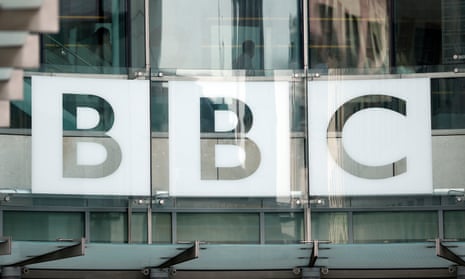More than half of BBC staff do not believe that cases of bullying or harassment would be tackled fairly by the corporation’s management.
Just 47% of employees who responded to the BBC’s annual staff survey said that if they experienced or saw bullying or harassment that they would be confident that taking action would result in a “fair outcome”.
And just over half – 51% – felt BBC policies and procedures would not be applied “fairly and effectively” in cases of bullying and harassment.
Despite the Jimmy Savile’abuse scandal, almost half of staff are not aware of the corporation’s policies to protect those wanting to alert managent.
Only 55% said that the knew that the BBC’s “whistleblowing” policy is available if they have concerns about any malpractice or wrongdoing at the corporation.
A leaked copy of a draft of Dame Janet Smith’s report into Savile’s misconduct at the BBC said a widespread fear of whistleblowing among staff allowed Savile to get away with abuse “in virtually every corner” of the broadcaster’s premises.
“I found that employee witnesses who were about to say something to the review that was even mildly critical of the BBC were extremely anxious to maintain their anonymity,” Smith wrote. “These people were, and still are, afraid for their positions. Even with modern employment protection, people fear that, even if they do not lose their jobs, their promotion prospects will be blighted if they complain.”
A BBC spokesman said said that the corporation’s whistleblowing policy was “highly ranked” compared to other public sector organisations.
“Whistleblowing is a challenge for all organisations, not just for the BBC,” said a BBC spokesman. “While our scores around bullying, harassment and whistleblowing have improved compared to 2014, we are not complacent and work is continuing to further improve. That includes training for all new managers, a large amount of staff support including counselling, a dedicated bullying and harassment support line, and mediation. Our whistleblowing policy includes a number of ways staff can raise any concerns, and it was found to be highly ranked when compared to other public sector organisations in an independent review last year by the GoodCorporation.”
The staff survey also found that in general morale was low, with the majority of respondents losing faith in senior management, which is in the process of finding £700m in cuts.
Just 43% said that they had confidence in the decisions being made by the BBC executive team and their divisional leadership team.
And only a little over half (55%) believed that their colleagues behave respectfully toward each other, regardless of seniority.
“In common with organisations of a similar size, the BBC conducts annual all staff surveys to understand the issues that matter to our employees,” said Valerie Hughes-D’Aeth, the BBC’s director of human resources.
“We’re pleased that 93% of staff are proud to work at the BBC – an increase on the last year – and that our scores in many areas are significantly higher when compared to other organisations.”
Only 46% of staff felt that their line manager “addresses poor performance effectively”.
Staff also felt disillusioned about pay – just 40% beleived they were “fairly rewarded” – and just 38% believed the BBC has a fair and open process for filling internal vacancies.
Workload is also an issue for many staff, with 46% feeling it was not “usually achievable” during normal working hours.
Staff were also sceptical about plans to make the corporation’s output more appealing to a younger, tech-savvy generation, which includes next month’s move to shut the BBC3 TV channel and make it an online-only service.
Only 51% of staff said they thought that the BBC is “doing the right things to ensure that we transform our offer for younger audiences”.
The BBC said that 54% of staff completed the annual survey.
Bectu supervisory official Helen Ryan pointed out that the result that showed just 43% had confidence in the decisions being made by the BBC executive team and their divisional leadership team is below the UK average of 55%.
She said the lack of trust in executive decisions was concerning, “especially as there is a new team” as was the result that, 60% of staff do not believe they are fairly rewarded and that “people still don’t believe there is an open and transparent filling of internal vacancies.”
Ryan said there is a “sense of frustration” that “people fill in the survey, which costs the BBC a lot of money” but “feel their concerns are not being addressed.”
